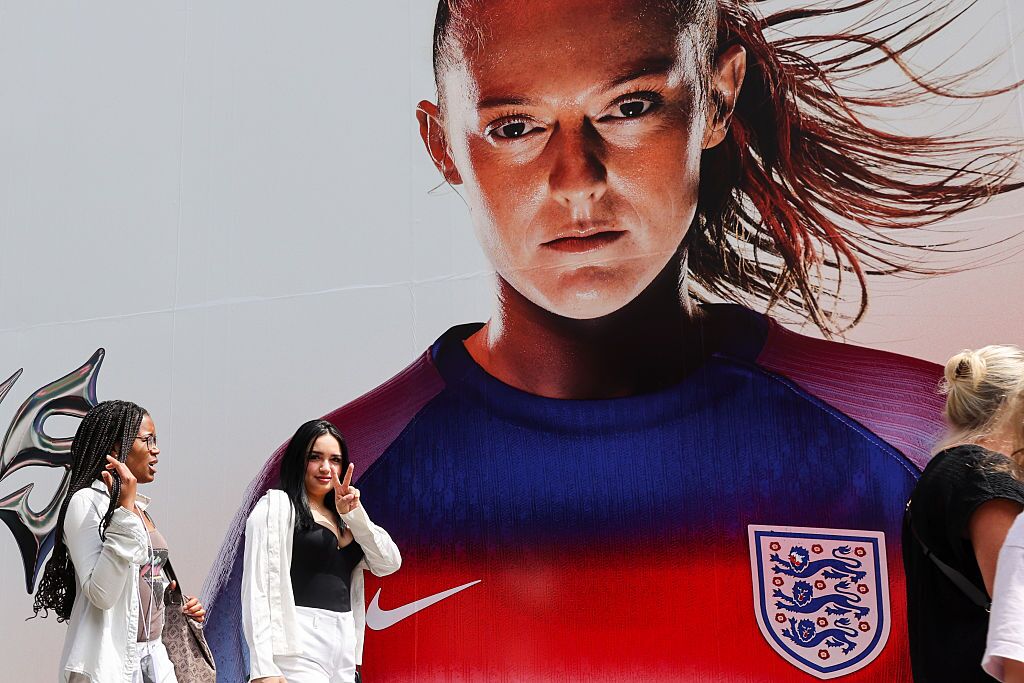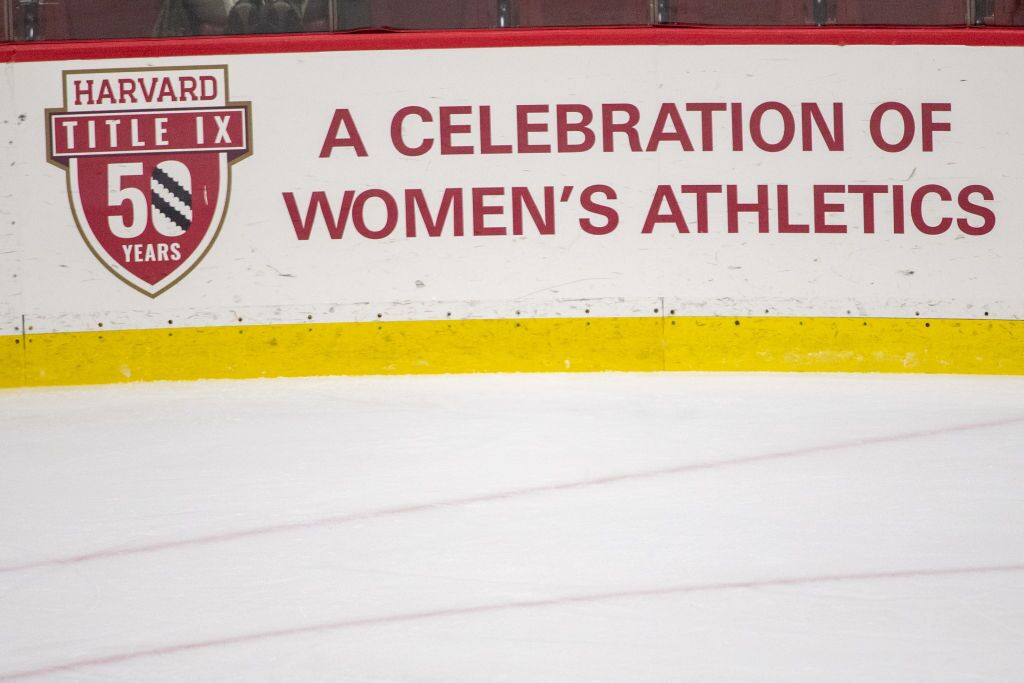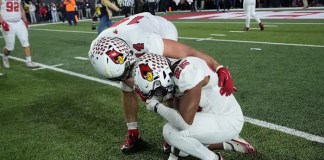As appeals are filed relating to a collegiate athlete compensation settlement, these women-led groups are making sure female athletes aren’t left out.
Members of the Democratic Women’s Caucus are pushing Congress for explicit Title IX protections for women student-athletes in a proposed national law related to name, image and likeness (NIL)—and long-time gender equity advocates hope they succeed.
“I’m really concerned that we’re going back to the 1970s and earlier, before Title IX took effect,” said attorney Jayma Meyer, a visiting clinical professor and adjunct professor at the Maurer School of Law at Indiana University.
Four years into student-athletes being able to capitalize on their NIL, 32 states have enacted their own laws. Now, there is a proposed bill before Congress, the Student Compensation and Opportunity Through Rights and Endorsements (SCORE) Act, which is designed to establish a national framework for collegiate athlete compensation, particularly as it pertains to NIL.
Something the SCORE Act doesn’t take into consideration is Title IX and gender equity. Earlier this year, the Department of Education Office of Civil Rights rescinded guidance put in place by the Biden administration, noting it was “overly burdensome” and effectively stating that Title IX, an educational statute that prohibits discrimination based on gender at any institution receiving federal funds, is inapplicable to NIL.
“There’s a lack of mention of Title IX and lack of mention of gender in the SCORE Act, which is extremely disappointing and leads to a lot of ambiguity as to any protections,” said Dr. Lisa Delpy Neirotti, director of the master’s in sport management program at George Washington University School of Business and an associate professor of sport management.
This is particularly troublesome as college sports is awaiting massive compensation to collegiate athletes who are competing or have competed. This settlement is a result of an antitrust lawsuit, House v. NCAA, which allows direct compensation of collegiate athletes for their NIL. Part of the settlement is a $2.8 billion payment from the NCAA and major athletic conferences. It is anticipated that football and men’s basketball will receive approximately 90 percent of the money.

“This creates a huge disparity based on gender and violates Title IX,” said Shiwali Patel, senior director of safe and inclusive schools for the National Women’s Law Center. “Given that Congress has decided to address NIL compensation for students—essentially in many ways codifying this settlement agreement—it is so important that Congress make clear that Title IX applies here.”
To be clear, this does not apply to individual NIL deals that student-athletes have—be they lucrative deals with a corporation or a sponsored social media post. It relates to monies that come through an institution.
Meyer said there are appeals to the Ninth Circuit with respect to the House settlement, two of which directly deal with gender equity, and Patel said colleges and universities should ensure that the resources they’re putting into marketing and promoting sports are equitable, as this impacts NIL opportunities.

“While NIL payments fall within Title IX’s treatment and benefits laundry list requiring equitable promotion, publicity, marketing and even recruitment, they also fall within Title IX’s requirement of proportionate financial assistance,” Meyer explained. “Moreover, they are captured by the 37 words of Title IX that prohibit sex discrimination in benefits provided.”
Twenty-one members of the Democratic Women’s Caucus have sent a letter to members of Congress connected to the SCORE Act, explaining that a bill to regulate NIL compensation must include adequate protections for women collegiate athletes, and not addressing Title IX is a blaring omission.
The members of Congress outlined their concerns and offered several critical provisions, most notably affirming that Title IX protections fully apply to the NIL revenue sharing framework established under the SCORE Act and clarifying guidance from the House v. NCAA to ensure women athletes receive an equitable share of any compensation or settlements.
Data shows that women are being shortchanged in this new landscape. We wanted to make sure our voice was included in urging Congress to amend the SCORE Act to explicitly protect women athletes.
Hilary Meyer, Athletes Unlimited
Rep. Sydney Kamlager-Dove (D-Calif.), co-chair of the Democratic Women’s Caucus, said at present 90 percent of the distribution related to the House Settlement will be going to football and men’s basketball players, largely considered the big moneymakers, and the remaining 10 percent is to be divided between women’s basketball and all other student-athletes.
“That is as unequal, inequitable, disproportionate and shameful as they come,” Kamlager-Dove said, adding that NIL disparities are heightened for Black women. “We’re asking for critical provisions to be added to the SCORE Act.”
The letter noted: “We strongly urge you to amend the SCORE Act to explicitly protect women athletes, reinforce Title IX’s authority and application to NIL compensation, and provide clear statutory guidance in light of recent court decisions.”
“Data shows that women are being shortchanged in this new landscape,” said Hilary Meyer, chief impact and athlete engagement officer of Athletes Unlimited (AU), one of seven organizations that endorsed the letter. “We wanted to make sure our voice was included in urging Congress to amend the SCORE Act to explicitly protect women athletes.”
Kassandra Ramsey, an attorney and president of The Drake Group, which works to educate Congress and higher education about critical issues in intercollegiate athletics, said, “I do think that Title IX applies to NIL anytime that the school has a close relationship with an NIL collective or, in this case, as the schools are now able to engage in revenue sharing with the athletes.”
“If distribution is truly on revenue generation, women are screwed,” said Delpy Neirotti. She added that some women’s sports, such as basketball, have numbers that are being undervalued.
“We need to do a lot more on raising interest in women’s sports so that the value can be truly represented.”
Great Job Lois Elfman & the Team @ Ms. Magazine Source link for sharing this story.





